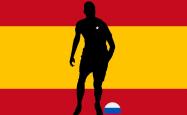冬奥会体育项目英文
Winter Olympics: Celebrating ColdWeather Sports
The Winter Olympics is an international multisport event held every four years, featuring a wide array of coldweather sports. Dating back to the inaugural Winter Games in 1924, this prestigious event has evolved into a global celebration of athleticism, camaraderie, and cultural exchange.
History:
The concept of the Winter Olympics originated from the success of the Summer Olympics, prompting the International Olympic Committee (IOC) to organize a separate competition for coldweather sports. The first Winter Olympics took place in Chamonix, France, with six sports on the program: figure skating, ice hockey, Nordic skiing, ski jumping, bobsleigh, and curling. Since then, the Winter Olympics have grown significantly, with new sports and disciplines continuously being added to the roster.
Sports:
The Winter Olympics showcase a diverse range of sports that thrive in cold climates. These sports can be categorized into several disciplines:
1.
Snow Sports:

Alpine Skiing: Featuring downhill, slalom, giant slalom, superG, and combined events.
Freestyle Skiing: Including aerials, moguls, slopestyle, halfpipe, and ski cross.
Snowboarding: Showcasing disciplines like halfpipe, slopestyle, snowboard cross, and parallel giant slalom.
CrossCountry Skiing: Involving races of varying distances and techniques, such as classical and freestyle.
Ski Jumping: Where athletes compete to achieve the longest jumps off a specially designed ramp.
Nordic Combined: Combining ski jumping and crosscountry skiing into a single event.
Biathlon: A combination of crosscountry skiing and rifle shooting, testing both physical endurance and marksmanship.
2.
Ice Sports:
Figure Skating: Featuring singles, pairs, and ice dance competitions, known for its grace, precision, and artistic expression.
Speed Skating: Involving races over various distances on a long track or a short track.
Ice Hockey: A fastpaced team sport played on ice, with intense action and strategic gameplay.
Curling: A sport where teams slide stones on a sheet of ice towards a target area, requiring precision and strategy.
3.
Sliding Sports:
Bobsleigh: Teams of two or four athletes race down an icy track in a gravitypowered sled.
Luge: Athletes slide down the track on a small sled while lying on their backs, navigating twists and turns.
Skeleton: Similar to luge, but athletes slide facedown and headfirst, reaching exhilarating speeds.
Impact and Legacy:
The Winter Olympics serve as a platform to promote winter sports and inspire a new generation of athletes. Hosting the Games provides an opportunity for cities and countries to showcase their culture, infrastructure, and hospitality on the global stage. Moreover, the Olympic values of excellence, friendship, and respect resonate throughout the event, fostering unity and understanding among nations.
Conclusion:
In essence, the Winter Olympics encapsulate the spirit of athleticism, determination, and unity amidst the challenges of cold climates. As athletes from around the world gather to compete in these exhilarating sports, they embody the Olympic motto: "Faster, Higher, Stronger – Together." So whether it's the grace of figure skating, the thrill of downhill skiing, or the intensity of ice hockey, the Winter Olympics offer something for everyone to enjoy and celebrate.









